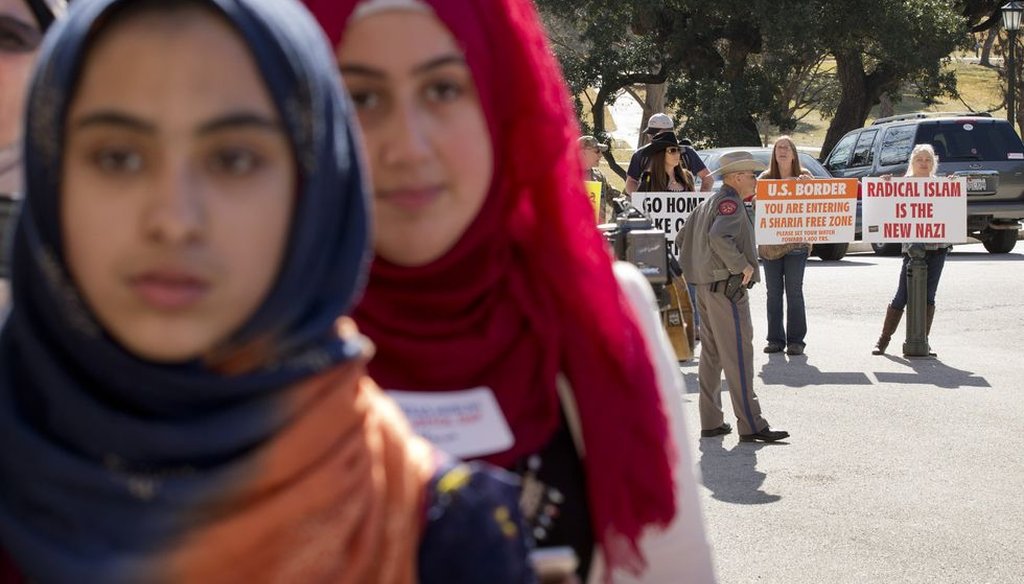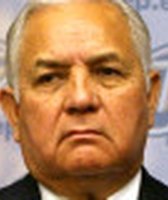Stand up for the facts!
Our only agenda is to publish the truth so you can be an informed participant in democracy.
We need your help.
I would like to contribute

A day devoted to Muslims at the Texas Capitol drew believers and protesters Jan. 29, 2015. Our 2011 fact check failed to find Shariah law being imposed by a court in Michigan. (Photo, Jay Janner, Austin American-Statesman).
A Muslim rally interrupted outside the Texas Capitol last week reminded us we'd checked a Texas legislator's claim about Shariah law being followed in a U.S. city.
In the 2011 regular session, then-state Rep. Leo Berman won House approval of a proposal that would prohibit courts from making legal decisions based on foreign laws, such as Shariah, the religious law of Islam.
House members attached Berman’s legislation as an amendment to House Bill 274, a tort reform measure that Gov. Rick Perry had deemed emergency legislation, before sending the overall proposal to the Senate.
Berman, R-Tyler, drew our attention, though, when he told the House Committee on Judiciary and Civil Jurisprudence that Shariah law is "being done in Dearborn, Mich," adding:"The judges in Dearborn are using, and allowing to be used, Shariah law. Also in England... in France and in Germany, the use of Shariah law is being allowed as well."
See the entire fact-check here.
Our conclusion was that Dearborn Muslims, like all U.S. Muslims, may follow Shariah law in their personal lives and may enter into contracts—such as pre-nuptial agreements—bound by their principles. So may adherents of other religious faiths. And judges may use religious laws to interpret such contracts, providing all parties agree from the beginning.
Far as we could tell, though, judges did not use Shariah law in lieu of the U.S. Constitution or state laws—nor were they doing so in Dearborn. Berman's statement landed a False from the Texas Truth-O-Meter.







































